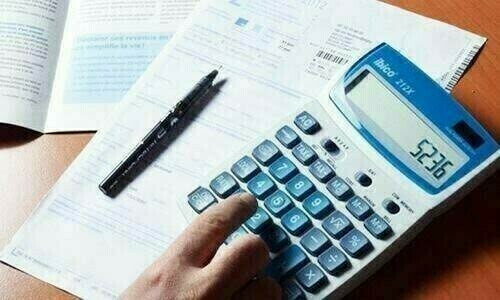THE sales tax in Vat mode is generally seen as a stable source of revenue, but a common faultline in this system is its susceptibility to unethical practices, something witnessed in both developing and developed countries.
This issue has put a question mark on the superiority of Vat over other forms of consumption taxes, such as the retail sales tax.
In Pakistan, the sales tax is a major source of tax revenue; its share in total federal tax receipts is around 45pc.
However, the issue of sales tax fraud in terms of frequency and size is a matter of grave concern for the tax authorities. Undoubtedly, the issuance of fake and flying invoices for claiming input tax or tax refunds constitutes the main form of sales tax fraud, but it exists in more than one form.
In a few reported cases, some businesses completed their sales tax registration by submitting their employees’ documents. In such cases, the actual beneficiaries of the refunds or input tax adjustment remain ‘hidden’. Whenever records of these dummy units are subjected to examination, the tax demand so created cannot be collected as the amount is assessed against the employees rather than the enriched real business-owner.
There are also known cases where invoices have been issued on the basis of fake or non-verifiable import goods declaration (GDs) in sales tax returns. Thus the whole amount of input tax adjusted by the buyers are proved to be illegal and also recoverable.
In fact, the goods supplied to unregistered persons and invoices generated on the basis of fake GDs are utilised for input tax adjustment to avoid the payment of due tax along with the extra tax on account of supplies made to unregistered persons.
In certain cases, it was also found that registered persons supplied taxable goods to unregistered persons but succeeded in obtaining invoices from registered units that were engaged in an entirely different business or supplied other goods. Such flying invoices are being extensively used to claim input tax or sales tax refunds.
Registered persons claiming input tax on invoices of over Rs50,000 are required to make payments through the prescribed banking channels. Nevertheless, tax fraudsters open bank accounts by using documents/signatures of others (like their employees). This enables the buyers to ensure compliance with Section 73 of the Sales Tax Act 1990.
Last but the least, the sales tax is an indirect tax. Businesses are supposed to shift the burden of this tax to the final consumers of goods and services. In many cases, the registered persons charge sales tax on all supplies but they don’t declare their true turnover in the sales tax returns they file and thus evade sales tax.
In other cases, businesses declare turnover that is just below the threshold required for sales tax registration and thus continue to operate in the undocumented economy. Such businesses actually capture a large share of the market due to lower product prices as compared to those who operate under the sales tax net.
The multiple sales tax regimes lead to tax frauds. Furthermore, the import and supply of goods at reduced rate(s) could be a potential source of sales tax fraud as well.
For example, under the Sales Tax Act 1990, persons registered as manufacturers, importers, exporters and wholesalers — who were involved in the textile (including jute), carpets, leather, sports and surgical goods sectors — were given the benefit to import and supply goods at reduced rates of 6pc, 4pc or 0pc under a statutory regulatory order (SRO) issued in November 2011.
This SRO was superseded on January 1, 2012 and sales tax rates of 5pc and 0pc were introduced on the import and supply of such goods. And this was again amended 8-9 times. Through another SRO issued on February28, 2013, the zero-rating scheme was withdrawn and replaced with a sales tax rate of 2pc.
On July 26, 2013, the rates were further amended to 7pc, 5pc and 2pc. Under another SRO issued on October 4, 2013, the sales tax on the commercial import and supply of fabric was fixed at 3pc and value-addition at the rate of 2pc. This frequency of changing rates led to a number of cases where the SROs were misused over time.
For example, a company is reported to have misused SRO 1125 of December 31, 2011, and out of a demand of Rs439m, Rs150m was recovered. Another gang of fraudsters misused SRO 1125 and committed tax fraud to the tune of Rs796m.
It is, therefore, essential to minimise sales tax rates to avoid frauds. The sales tax administration and the prosecution system need to be streamlined to check such malpractices.
Published in Dawn, Business & Finance weekly, October 26th , 2015
On a mobile phone? Get the Dawn Mobile App: Apple Store | Google Play













































